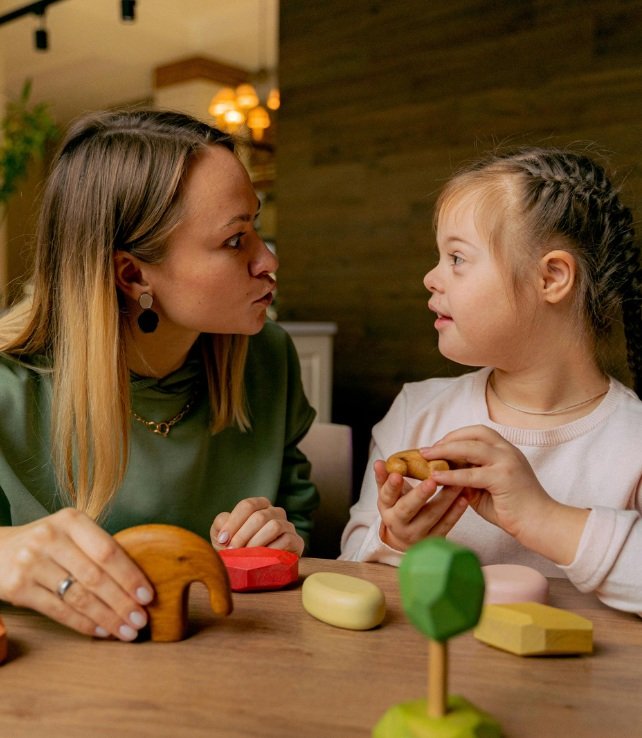Last Updated on May 22, 2025 by Emma
As parents, we all want to understand and connect with our children. Communication—through speech and language—is one of the most important ways children express their needs, thoughts, and feelings. While every child grows and learns at their own pace, some may take a bit longer to develop speech skills or may struggle with speech disorders – how certain words and sounds come out. The good news? Spotting these signs early can make a huge difference in getting your child the right support in social communication.
What is a Speech Delay?
A speech delay simply means your child is picking up speech skills more slowly than expected, even if their understanding of language is normal. For instance, they might follow what you’re saying perfectly well but still use gestures instead of words to reply. It’s not uncommon, and with the right support, many kids catch up just fine.
Speech Delay Signs to Watch For
You know your child best. If something feels off about their speech, trust your instincts. Some red flags include:
- Speech is hard for others to understand after age 3
- Sounds are mixed up or missing in words (e.g., “top” for “stop”)
- Still saying things like “wabbit” for “rabbit” beyond age 4
- Using fewer spoken words than other kids the same age
- Relying mostly on pointing or gestures to communicate
- Difficulty moving the mouth or tongue properly to form words
Remember, some sound errors are perfectly normal at certain ages—but if your child isn’t progressing, or seems stuck for a while, it may be time to take a closer look.
What is a Speech Sound Disorder?
Unlike a delay, a speech sound disorder is when your child struggles to pronounce certain sounds clearly or correctly—beyond the age when most kids have already learned them. This can happen for a few reasons: maybe they can’t hear the sounds well, maybe their mouth muscles don’t coordinate properly, or maybe they’re unsure how sounds fit together in words. These difficulties often don’t go away on their own and can make your child’s speech hard to understand.
Types/Causes of Speech Sound Disorders
There are a few specific kinds of speech sound disorders that speech therapists often see:
- Articulation Disorder
Your child finds it hard to physically make certain sounds. They may:- Swap one sound for another (e.g., “wabbit” instead of “rabbit”)
- Leave out sounds (e.g., “ca” for “cat”)
- Distort sounds (e.g., a lisp on the “s” sound)
- Phonological Disorder
Your child can make the sounds, but uses them the wrong way in words.- They might mix up sounds (e.g., saying “tat” for “cat” and “tar” for “car”)
- Or drop the last sound in words (e.g., “cu” for “cup”)
- Childhood Apraxia of Speech (CAS)
The brain knows what it wants to say, but the mouth struggles to move in the right way.- Kids with CAS may have inconsistent errors and get frustrated because they know the word—they just can’t say it clearly.
- Orofacial Anomalies
Structural differences in the mouth or face, like a cleft lip or palate, can make it physically hard to produce or shape sounds properly. - Hearing Loss
If a child can’t hear speech sounds clearly—due to hearing loss or frequent ear infections—they may not learn to produce those sounds correctly. - Neurological Conditions
Conditions like cerebral palsy, genetic disorders, or past brain injuries can affect how the brain controls speech muscles or processes language, impacting both clarity and understanding.
When Should You Get Help?
If you’re wondering whether your child needs help, it’s always better to check than to wait. A licensed speech therapist can assess your child’s speech and figure out if there’s a delay or a more persistent issue. They’ll work with your child to:
- Teach specific sounds
- Improve speech clarity
- Build coordination for smoother, more confident speech
Early intervention is powerful. The earlier your child starts therapy (if needed), the better the outcome—not just for speech, but for confidence, social skills, and school readiness.
How Speech Therapy Can Help?
If your child is facing challenges with speech, speech therapy with a qualified speechtherapist can make a meaningful difference. These professionals are trained to assess your child’s specific needs and design a highly personalised plan to support their communication development.
Depending on the nature of the delay or disorder, therapy may focus on:
- Teaching how to produce specific sounds correctly
- Improving overall speech clarity and confidence
- Strengthening the coordination of mouth muscles for clearer speech
- Helping your child express themselves more effectively with words
Many therapists work closely with families, caregivers, and even teachers to ensure support continues beyond the therapy session. Some even offer speech therapy in familiar environments like your home or your child’s school, which can help your child feel more comfortable and engaged.
The most important thing to know? You’re not alone, and support is available. With patience, encouragement, and professional guidance, your child can make strong progress in their ability to communicate with the world around them.

